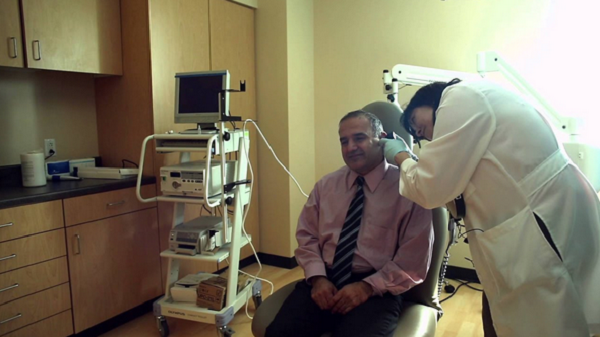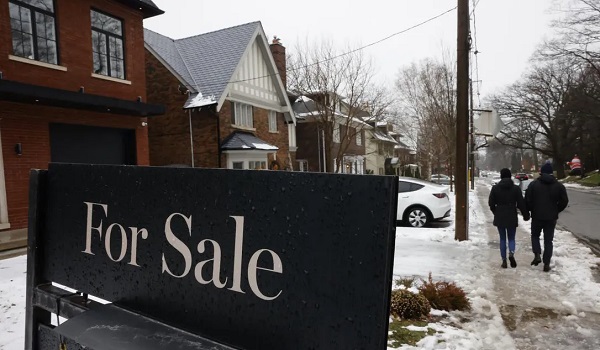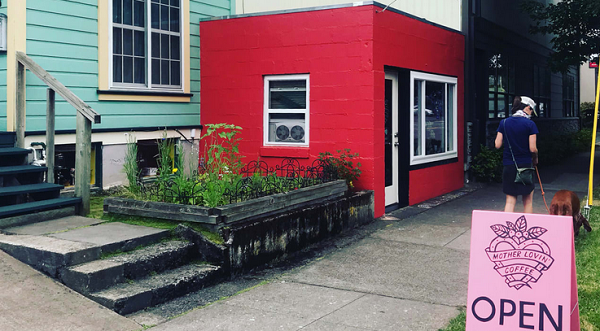Here’s how new screener is helping in the prevention of cancer in patients
When workers at an Amazon warehouse near Ottawa headed for the break room on a recent night, they were handed a card with an unusual invitation: an offer to be screened for cancer.
Anna Wilkinson, a general practitioner-oncologist at the Ottawa Hospital, and two of her colleagues were at the warehouse until midnight, hoping to connect Amazon employees with the new “super screener” they’ve hired to facilitate cancer screening for the growing number of Ottawa-area residents who don’t have a regular primary-care provider.
“There were many, many people that we talked to there who didn’t have a family doctor,” Dr. Wilkinson said. “Far more people said they didn’t than did.”
As the number of Canadians without a family doctor rises, preventive health services are at risk of falling by the wayside. People with family physicians are far more likely to be screened for cancer than those who rely on walk-in clinics, according to a recent study published in the journal Preventive Medicine. It found that 73.1 per cent of Ontario patients with doctors were up to date on their colorectal cancer screening, compared with 49.5 per cent of people who relied on walk-in clinics. The gap was similar for breast and cervical cancer screening.
The problem isn’t simply that Canadians without family doctors or nurse practitioners miss out on regular reminders for such services. It’s that primary-care providers also act as conduits in a disjointed medical system, handling the results of medical tests and making referrals for further tests, scans and specialist visits as necessary. In a system without enough primary-care providers, health care leaders must rethink their approach to cancer prevention, Dr. Wilkinson said.
The new program she and her colleagues pitched at Amazon is one such example and could provide a road map for cancer screening in other parts of Canada grappling with the same shortage of family doctors.
The Champlain Regional Cancer Program, which serves patients in Ottawa and nearby counties, hired nurse practitioner Sarah Junkin-Hepworth in July to provide and co-ordinate screening services for people without doctors. She’s been dubbed the “super screener.”
Andrea Miville, the manager of regional screening programs for Champlain, who was also at the Amazon warehouse that night, said the need for such a position became increasingly apparent as she received more and more calls from Cancer Care Ontario (now part of the Ontario Health super agency) asking her to help orphaned patients whose fecal immunochemical tests had come back with a red flag.
Normally, the results of those at-home stool tests, which Ontarians aged 50 to 74 can request through the mail every two years, would be sent to a family doctor, who would contact the patient and refer them for a colonoscopy.
But Ms. Miville wasn’t allowed to make those referrals herself. “All I could say was, ‘I’m really sorry, I’m going to have to send you to a walk-in clinic because I can’t do any better,’” she recalled.
Now, patients in that predicament can call Ms. Junkin-Hepworth, who, as a nurse practitioner, is authorized to make referrals. She builds similar bridges across the gaps in other cancer-screening programs, even doing Pap smears herself on clinic days she runs for women who don’t have family doctors.
To qualify for the super screener’s help, patients must have an Ontario Health Insurance Program (OHIP) card, reside in the Champlain region, meet the age or family-history requirements of Ontario’s cancer-screening programs and be without a doctor.
In its first 14 weeks, the program has connected with 169 patients, all of whom started with a phone call with Ms. Junkin-Hepworth. Of those, 135 were eligible for the program.
As of Oct. 31, Ms. Junkin-Hepworth had ordered 185 screening tests, 20 per cent of which were for patients who had never before been screened for cancer and 54 per cent of which were for patients who were overdue. Of all the tests she ordered, 7.4 per cent came back abnormal.
Ms. Junkin-Hepworth also helped 14 patients continue in a high-risk breast cancer screening program after their family doctors had retired or relocated. She did the same for 14 people who had fallen out of the province’s lung cancer screening program after they lost their doctors.
She said patients have told her: “‘This was so easy.’”
“That is really nice,” she added, “because that’s part of what we’re trying to do, right? Reduce barriers.”
Another way the program is dismantling barriers is by repurposing some of the networks public-health officials created to encourage uptake of the COVID-19 vaccines.
Ms. Junkin-Hepworth recently held a virtual town hall on cancer screening with some of the same community ambassadors who persuaded their friends and neighbours to get vaccinated. Screening outreach events at the Amazon warehouse, where many workers are newcomers who haven’t navigated the Canadian health care system before, serve the same purpose.
Statistics Canada’s most recent survey, from 2021, found that about 4.7 million Canadians did not have regular access to a health care provider, while a more recent survey of 9,000 Canadians, conducted for a project called Our Care, estimated it was closer to 6.5 million. In Ottawa, some 100,000 to 150,000 people don’t have a primary-care provider, according to Vera Etches, Ottawa’s medical officer of health.
Connecting those people to reliable primary care would be preferable to stopgap measures such as a super screener, said Tara Kiran, a primary-care researcher and physician at the St. Michael’s Hospital Academic Family Health Team in Toronto.
“People who don’t have a family doctor are missing out on a whole lot more than cancer screening,” she said. ”Some governments are looking for workarounds to the access problem, and I worry these distract from tackling the big problem of people not having primary care.”
Aisha Lofters, an academic family physician at Women’s College Hospital in Toronto, agreed it would be best if everyone had a reliable primary-care provider, but “as long we’re in the primary-care crisis that we’re in, which will take us a while to get out of, we really need to be looking at innovative models like this.”
This article was reported by The Globe and Mail
















